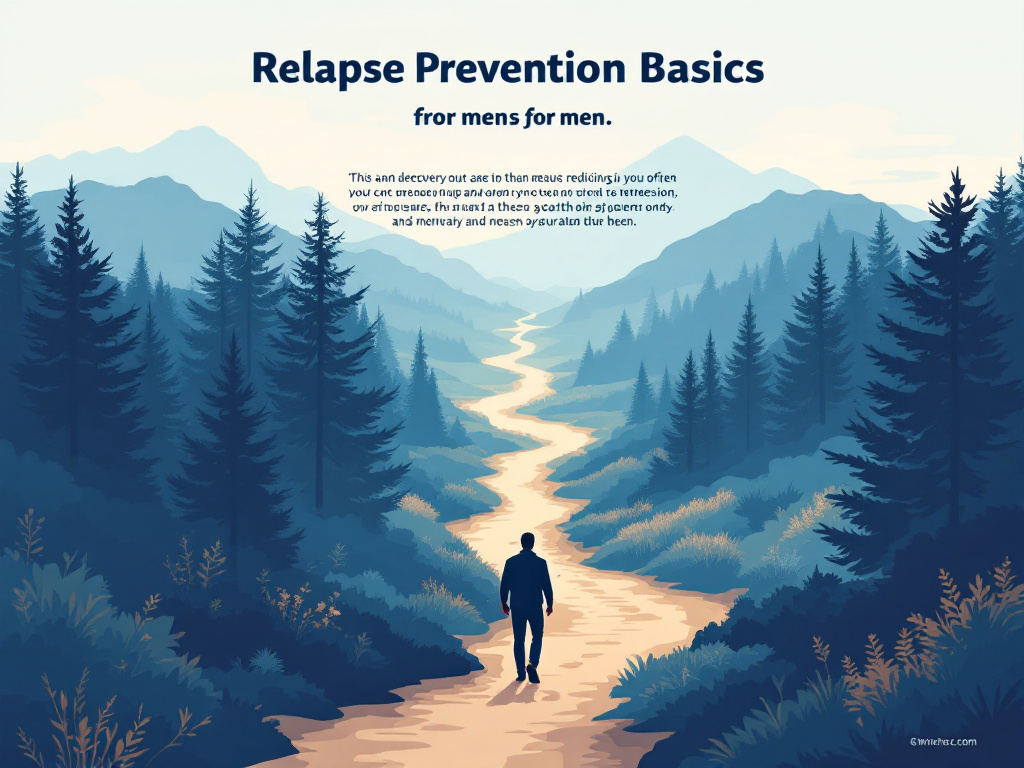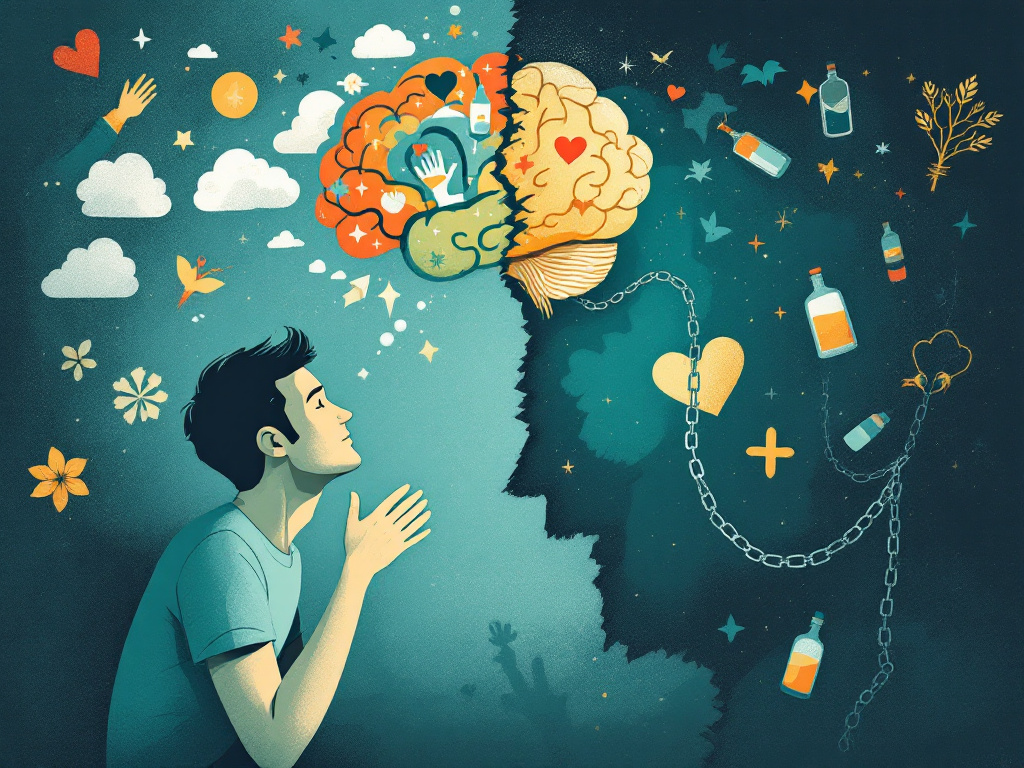Recovering from drug or alcohol dependency goes beyond simply managing physical symptoms. It also involves fostering a stable emotional outlook, developing coping strategies, and maintaining overall well-being. One important component that often gets overlooked in this process is nutrition counseling. By focusing on how you nourish your body, you can support your mental health, enhance your physical recovery, and reinforce healthier routines that set you up for lasting success in sobriety.
At Recovery Bay Center, we believe that addressing every dimension of health, including dietary needs, is crucial to creating a secure and grounded foundation for your men’s drug and alcohol rehab journey. Our facility emphasizes a supportive environment where you can learn about balanced eating, discover personalized meal plans, and receive guidance from qualified professionals. This all-encompassing approach encourages an easier transition back into daily life and a healthier future.
In this article, you will discover what to expect from nutrition counseling in a rehab setting, how Recovery Bay Center integrates meal planning and overall wellness tactics in its programs, and why this can make all the difference in your journey to recovery.
Why nutrition matters in rehab
Nutrition is far more than just calorie counting. It shapes how you feel, how you think, and even how your body responds to treatment. During men’s rehab, your body and mind undergo a transformation, and sound dietary practices can help amplify the benefits of therapies and interventions. Proper nutrition helps restore depleted nutrients, supports immune function, and stabilizes your energy levels, making you more receptive to additional forms of treatment such as individual therapy or group therapy.
Physical recovery support
Substance use can deplete key vitamins and minerals in the body. Low levels of essential nutrients can leave you feeling lethargic, restless, or unable to concentrate. By incorporating a balanced eating plan, you can renew your overall health. Research shows that incorporating nutrient-rich foods, such as lean proteins, vegetables, and whole grains, can help improve mood regulation, stabilize blood sugar, and promote tissue repair [1].
Emotional and mental balance
Recovery is, at its core, also an emotional journey. Balancing foods appropriately helps your body produce the neurotransmitters that keep your brain chemistry stable, supporting your resilience against stress and cravings. Coupled with stress management therapy, a healthy diet can reduce anxiety triggers and level out emotional swings. In many cases, individuals discover that diet plays a surprisingly powerful role in how they feel about themselves, their possibilities, and their progress.
Enhancing therapeutic outcomes
Your meals can dovetail with various evidence-based therapies to accelerate recuperation. Combining a robust diet with interventions like psychiatric support therapy or trauma informed therapy ensures you have the stamina, mental clarity, and emotional steadiness to engage in deeper work. In this way, every aspect of your care—fitness activities, group discussions, or specialized therapies—builds upon the next for greater efficacy, especially when you have consistent energy and improved overall well-being.
Understanding nutrition counseling
Nutrition counseling is a specialized service that involves evaluating your dietary habits and working with a qualified professional to develop sustainable eating strategies. It focuses on bridging health gaps and introducing balanced food choices so you can nurture your body from the inside out. Registered dietitians or licensed nutritionists typically conduct these sessions, applying evidence-based guidance to optimize your meal planning.
While many assume that nutrition counseling is intended only for individuals who need to gain or lose weight, the scope is much larger. It targets people who might experience chronic health issues, mental health challenges, and unique nutritional deficiencies that arise from substance dependence [2]. In a rehab setting, you typically collaborate with a dietary professional who works hand in hand with your broader treatment team, ensuring that both your physical and psychological needs are addressed in a cohesive manner.
What happens during a session
During an initial assessment, you fill out questionnaires or undergo quick screenings that help uncover your current eating patterns. Some counselors use a 24-hour recall method where you share, in detail, everything you ate or drank within the past day [1]. This helps your team pinpoint possible deficiencies or excesses, from insufficient protein intake to over-reliance on sugary snacks. You and your counselor then collaborate on suggestions and meal plans that fit your personal needs, including your activity levels, existing health conditions, and specific challenges you might face during recovery.
Benefits tailored to men
Men in recovery often have different metabolic rates, muscle mass, and even stress patterns compared to women. Gender-specific issues, such as societal pressures around masculinity, can influence diet and health choices. Nutrition counseling in a men-only rehab center recognizes these distinct challenges and fosters a space where you can safely address body image, hormonal fluctuations, and misconceptions about healthy eating. Equipping you with the nutritional support that is shaped by your physiology enables more productive outcomes in men’s mental health counseling and other key therapies.
Core elements of nutrition counseling in rehab
Nutrition counseling isn’t a single protocol. It’s a layered approach that involves continuous learning, adaptation, and professional guidance.
-
Assessment and goal setting
Your counselor will gauge your existing health status, body composition, and any co-occurring medical conditions. You then set clear targets—be it reducing sugar intake, boosting protein consumption, or managing any gastrointestinal issues that might accompany substance withdrawal. -
Customizing meal plans
Based on your goals, you receive meal plans that detail what, when, and how much you might eat for optimal energy and overall health. Organized schedules, portion guidelines, and specific macronutrient balances help you learn about effective meal structuring. Plans can also adjust if you have conditions like diabetes or heart concerns [3]. -
Medical Nutrition Therapy (MNT)
In certain cases, especially when chronic conditions like hypertension or diabetes are present, you might undergo a more targeted form of dietary management known as Medical Nutrition Therapy. This specialized intervention pairs closely with your broader clinical regimen. It might incorporate carbohydrate counting, portion assessments, or reducing sodium intake, all under the supervision of licensed professionals. -
Monitoring and follow-ups
Ongoing consultation ensures you stay accountable and receive updates to your plan as you progress. Frequent check-ins help measure success as well as address any stumbling blocks—such as relapses in old eating habits or stress-induced eating patterns [4]. -
Lifestyle integration
Long-term success depends on how well your dietary changes become integrated into your daily routine. Building a sustainable lifestyle includes learning about meal planning, understanding how to shop for healthy groceries, and picking suitable snacks for your unique needs. Your counselor can also address practical issues, such as time or budget constraints, so you can maintain healthier habits beyond rehab.
Impact on mental and emotional wellness
A balanced diet supports the production of mood-regulating hormones and neurotransmitters, such as serotonin and dopamine. These hormones are tied to emotional stability, motivation, and stress management. When you align your nutritional plan with therapies like trauma group therapy or dual diagnosis therapy, you create a stronger basis for addressing psychological hurdles. Substance use can disrupt bodily systems that stabilize mood and manage stress, so proper nutrition helps correct biochemical imbalances, reducing cravings and impulsive behavior.
Integration with other treatments at Recovery Bay Center
A well-rounded approach
At Recovery Bay Center, we offer a comprehensive framework that merges mainstream therapies with supportive services like nutrition counseling. A few of these complementary treatments include:
- Holistic therapy: Encourages you to analyze the mind-body-spirit connection while adopting wellness techniques like mindfulness, relaxation routines, or yoga and meditation.
- Psychiatric support therapy: Delves into mental health issues to ensure you have the right medications (when needed) and emotional tools, complementing your dietary improvements.
- Men’s mental health counseling: Focuses on the unique challenges men face, such as shame, guilt, or societal expectations, which often appear alongside substance use disorders.
- Life skills training therapy: Trains you on practical tasks that include food preparation, efficient grocery shopping, or budget management, all of which play a pivotal role in sustaining healthy eating habits.
When these different therapies intersect, they support each other. For example, if you learn coping strategies in stress management therapy, you can then employ those same techniques to deal with emotional triggers that might push you to binge on sugary foods or skip meals entirely.
Collaboration with medical care
Medical supervision is a key element of effective rehab. Our team checks for any underlying conditions or nutritional deficiencies that can impede recovery. As a result, you might also interact with services like on site medical care or 24 7 nursing care. If you are dealing with opioid withdrawal symptoms, a solid nutritional plan can reduce discomfort and reinforce the work of safe withdrawal environment or medical staff detox protocols.
Why choose nutrition counseling at Recovery Bay Center
Adapting a more mindful perspective of your diet might seem daunting, but our proven strategies will guide you smoothly into healthier habits. Here’s what makes nutrition counseling at Recovery Bay Center distinct:
-
Targeted men’s rehab environment
Our programs address male-specific concerns, acknowledging the demands of societal pressures around masculinity and expectations to appear strong. In this environment, you can be open about struggles with meal preparation or body image, without fear of judgment. -
Licensed dietitian expertise
Our professionals have extensive training in dietetics, offering safe and evidenced-based plans. Beyond setting calorie or nutrient goals, they consider your overall health picture, alongside any co-occurring mental or physical challenges that affect your eating patterns. -
Holistic care approach
We do not merely fixate on short-term solutions. Instead, we embed nutrition counseling into a broader array of supports, such as holistic therapy, relapse prevention therapy, and structured mental health support. This synergy enables more resilient outcomes. -
Practical lifestyle training
Our staff collaborates with you to develop life skills that translate seamlessly outside of rehab. You learn how to plan meals, read nutrition labels, and keep a schedule that accommodates balanced eating in everyday life. With the right mindset and consistent practice, you can carry these habits into permanent recovery. -
Ongoing follow-ups
Support doesn’t end when you leave our facility. We offer outpatient step down care, telehealth case management, and peer support alumni options. These continuity programs keep you motivated and informed, whether you need a gentle reminder to refill healthy grocery items or want to refine your meal plan.
Nutrition counseling in action: A sample plan
While each individual has unique needs, the following table illustrates a simplified daily plan that you and your dietitian might explore during a session. This is merely an example focusing on broad meal composition and timing. Specific foods and portion sizes can be adjusted to your personal goals, cultural preferences, and any clinical guidelines you must follow.
| Time of Day | Meal / Snack | Purpose |
|---|---|---|
| 7:00 AM | Balanced Breakfast | Combination of complex carbs and protein to stabilize energy. Example: Oatmeal with low-fat milk and fresh fruit |
| 10:00 AM | Light Mid-Morning Snack | Helps maintain steady metabolism and prevent low blood sugar. Example: Greek yogurt with berries |
| 12:30 PM | Substantial Lunch | Nutrient-dense meal with lean protein (chicken/fish/beans), whole grains, and vegetables. Encourages satiety and stable energy |
| 3:00 PM | Afternoon Snack | Keeps hunger at bay, reducing binge eating habits. Example: Celery sticks with hummus |
| 6:30 PM | Wholesome Dinner | Balanced protein, whole grains, and lightly cooked vegetables. Supports recovery and tissue repair overnight |
| 8:30 PM | Optional Evening Snack | If needed, a low-calorie option to avoid nighttime cravings. Example: Cottage cheese or a fruit-based smoothie |
This kind of plan ensures a regular intake of essential nutrients, which can be crucial if you are also navigating therapies such as dual diagnosis therapy. The steady availability of fuel for your body and brain helps optimize concentration and elevate mood, particularly when participating in structured rehab activities.
Your rehab journey at Recovery Bay Center
Choosing Recovery Bay Center means you receive comprehensive care. We incorporate nutrition counseling to strengthen your resolve, align with your body’s healing needs, and foster habits that extend well past your initial recovery. Below are some additional program features that can reinforce the benefits of sound nutrition:
- Physical Fitness: Exercise routines, whether a brisk walk, structured outdoor fitness, or guided stretching, help you manage cravings, maintain a healthy weight, and reduce stress.
- Therapy Integration: Sessions like trauma group therapy and psychological support therapy can be more effective when you have adequate energy and a regulated mood.
- Social Support: Participation in recovery support groups or peer support alumni activities introduces a community aspect into your healing process. Sharing nutritional tips or meal ideas with peers can help you stay on track.
As you proceed, you can also explore specialized treatments like pain pill withdrawal management or suboxone treatment rehab if needed. Our integrated system ensures you get the correct balance of medication-assisted treatment, emotional support, and nutritional guidance so that every aspect of your rehab journey works in tandem.
Building lasting habits
Completing a rehab program is only the first step. Developing and maintaining a healthier lifestyle must become part of your everyday routine. Here is how you can sustain the benefits around nutritional therapy:
-
Keep a food journal
Documenting your daily meals and snacks fosters awareness, tracks progress, and helps you notice how certain foods influence your mood or energy levels. -
Stay connected with your counselor
Even after leaving the facility, consider routine check-ins or telehealth visits. These sessions help you adapt your meal plans as your body changes or your environment evolves. -
Involve family and friends
Encouragement from loved ones can motivate you to stay on your nutritional path. They can also learn what your body needs, so they know how to support you at celebrations or social gatherings. -
Leverage additional support
Look into community groups, online resources, or local classes focused on healthy cooking. Engaging with like-minded people may make it easier to share tips, healthy recipes, and best practices.
When you have a clear blueprint for integrating nutrition into your life, it improves your odds of preventing relapse and reinforces healthier behavior patterns well into the future.
Frequently asked questions
Below are five questions people often ask when exploring the value of nutrition counseling in a rehab setting.
-
Is nutrition counseling just for weight loss?
Not at all. Although weight management can be part of the plan, nutrition counseling in rehab involves a much broader scope. It aims to replenish nutrients lost during substance use, support mental health, and establish consistent meal routines that benefit your overall recovery. -
How do I know if I need nutrition counseling?
If you notice fatigue, mood swings, reliance on sugary snacks, or preexisting eating issues, you could likely benefit from a dietary review. Even if weight isn’t your primary concern, nutrition counseling can help stabilize your energy levels and mental focus during rehab. -
Does health insurance cover nutrition counseling?
Coverage varies by insurer and policy. Some providers cover a set number of visits, especially when it’s considered medically necessary, such as for diabetes or hypertension. Check with your insurance or speak with our admissions team for personalized guidance. -
Can I still enjoy my favorite foods while in rehab?
Moderation is key. Your dietitian can help you incorporate occasional indulgences into your recovery plan without sabotaging progress. The goal is to cultivate balanced relationships with all foods rather than impose restrictive limitations. -
Where does nutrition counseling fit with other therapies?
Nutrition counseling is a complementary element that runs parallel to therapies like family therapy, individual therapy, or holistic therapy. It offers the physiological backing you need to get the most from sessions that address emotional and mental well-being.
Take the next step
By now, you understand that your recovery journey is multifaceted. When you integrate nutrition counseling into your regimen, you lay a strong foundation for both short-term gains and lasting health. Recovery Bay Center prides itself on weaving nutritional guidance seamlessly into an established arsenal of therapies, from dual diagnosis therapy to structured recovery plan, ensuring you address every facet of your well-being.
If you, or someone you care for, are considering treatment, let us guide you through your next steps. By combining a supportive environment, individualized attention, and evidence-backed nutritional strategies, Recovery Bay Center can help you reclaim your life. Reaching out to our team is more than just seeking detox or rehab. It’s a decision to embrace an improved quality of life, built on a stable, healthy, and hope-filled foundation.
Contact us today to learn more about how we integrate nutrition counseling into our men’s rehab and detox programs, and discover how this well-rounded approach can be your key to sustained transformation. We’re here to help you shape a more positive tomorrow.





